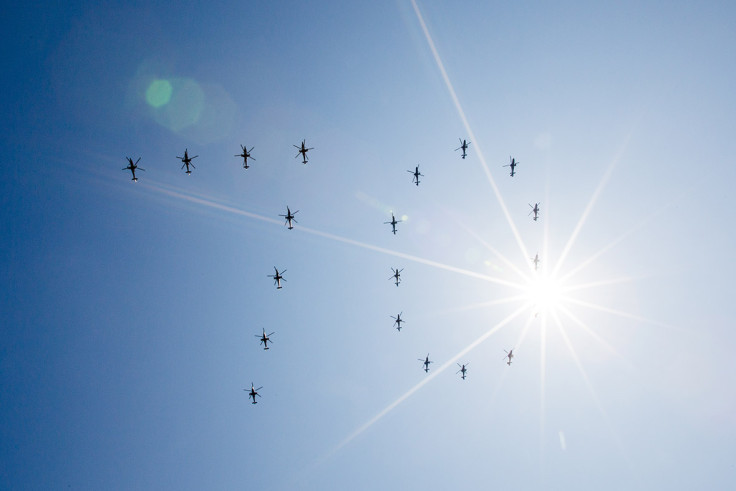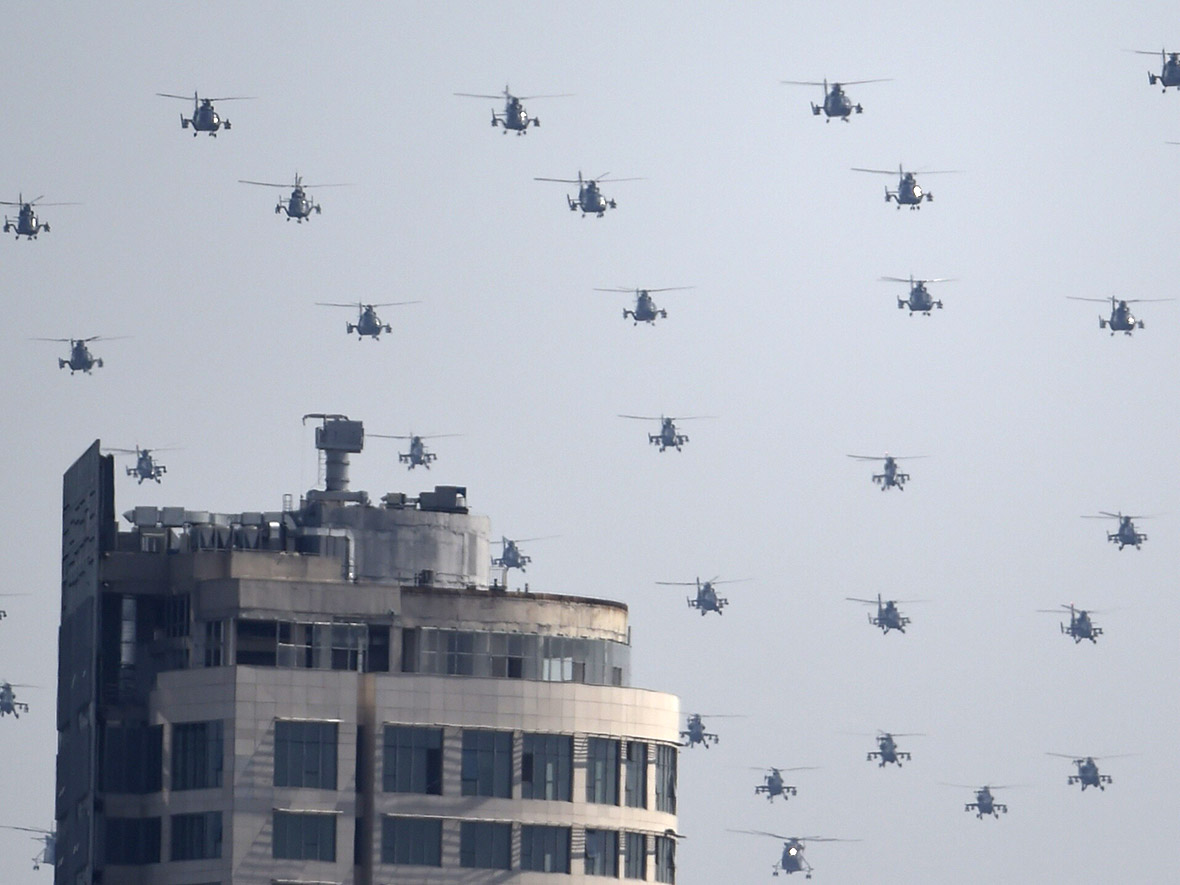China: Scenes from Beijing military parade to mark 70th anniversary of end of WWII
China staged a massive parade of tanks, missiles and troops that displayed growing military might. However, President Xi Jinping pledged to reduce the army by 300,000 troops in a bid to show his country poses no expansionist threat. The Beijing spectacle commemorated Japan's Second World War defeat seven decades ago. Helicopters zoomed across the sky in an array forming the number 70, and 200 aircraft of various types flew over Tiananmen Square. The event involved more than 12,000 troops and 500 pieces of military hardware.

China's latest model Type 99A2 tanks led the armoured contingents, followed by self-propelled artillery, anti-aircraft systems and a variety of short, intermediate and long-range missiles. Unmanned aerial vehicles were loaded aboard trucks, while aircraft including China's domestically developed J-10 fighters and H6 bombers flew overhead streaming trails of coloured smoke.
Of special interest was the appearance of the DF-21D anti-ship ballistic missile, potentially capable of sinking a US Nimitz-class aircraft carrier in a single strike. Although questions remain over its reliability on the battlefield, the weapon has stirred concerns in the Pentagon about the vulnerability of US military assets in the case of an attack on Japan, Taiwan or American bases in Asia.






The Chinese president said the 2.3-million-member People's Liberation Army would be cut 300,000 troops. However, it would still remain the world's largest standing military and the reduction comes at a time when growing technological capabilities reduce the need for large numbers of troops.













The grand parade concluded with the release of 70,000 doves and multi-coloured balloons, expressing the Chinese people's hope for a peaceful world.



The parade is part of commemorations packaged to bolster the ruling Communist Party's self-declared role as the driving force behind Japan's defeat 70 years ago and saviour of the nation, though historians say the rival Nationalists did most of the fighting. The events also minimise the role of the US and Britain and their Allies, although Beijing has attempted to stress the support it has received from a wide spectrum of foreign nations.
© Copyright IBTimes 2024. All rights reserved.






